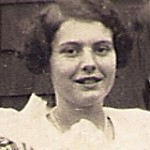We'd love to have you access this content. It's in our members-only area, but you're in luck: becoming a member is easy and it's free.
Already a Member?
Not a Member Yet?
s they say, none of us are getting any younger and, this year, I (and each of my siblings) have seemed to help my mother take care of more things. At 89, she still lives alone but that is made possible by the support she receives. So, I realized that it was not too early […]
Years ago, I created lovely memoir booklets (48 pages, single fold, jacket with photo) about my grandparents that I gave to my children, my siblings and their children. It was a great success. The generation after mine (my kids, nephews and nieces) knew very little about their greatgrandparents and many appreciated this booklet. When I approached my mother about doing her life, she said there really wasn’t anything to write about. She did not seem very enthused. Perhaps another year, I thought, before I can get my mother’s memoir book started. [Free Membership required to read more. See below. ]
 What would happen to the memoir conversation if…
What would happen to the memoir conversation if…
- …you took a moment to present this informative post to your friends and family by linking this article on your social media? Just a click. It’s so easy.
- …you reposted this article on your own blog or website? It’s free and you’d both have some valuable content to boost your blog’s reputation and you would be providing your readers with valuable guidance. For the best procedure on how to do this, click here.
- …you subscribed to our YouTube channel?


Denis,
It’s easy to identify with your process of writing your mom’s story. Nine years ago a friend and I wrote a memoir of her husband’s capture in Africa, and his 14 months in an Italian prison camp and then in two German prison camps as a wounded U.S. soldier. I had heard some of the stories and asked Tony if we could write his stories together. Although he was a great storyteller, he always refused by saying, “They’re too painful to talk about.” However, he repeatedly told certain ones to Nancy and a few to my husband and me, and select friends, over dinner after he had a glass of wine–or two. The stories never changed. For his 80th birthday, Nancy and I crafted a 20-page document with photos and an Appendix of World War II information off the Internet which applied to his unit plus Red Cross debriefings when they inspected prison camps.
Nancy and I walked at the beach each Saturday morning and discussed his stories that I had written that week from memory. I’d give her a list of questions to ask him at their leisure during the week. These answers helped with detail and very often set him to reminiscing and inadvertently he provided the exact detail we needed to round out the stories or start a new one. We presented the document to him for his 80th birthday. We all sat around the table and cried as he opened the surprise–and he cried with us. He and Nancy are now in a nursing home together in Boca Raton.
She and I continued to write her story of their years together after the war. As her gift to him, she framed his medals (15-18 of them) in a shadowbox. She had sent for them years ago through the Army but never did anything with them. I found a website explaining the significance of the ribbons and medals’ displayed in his shadowbox, such as the Purple Heart, etc., and created an Appendix with telegrams his parents received and he had kept regarding his capture in Africa, his injuries, and his transport to the Italian camp (actually a convent that had been turned into a makeshift war hospital) and then “moved up the boot” as the Allies invaded from the south, to two German camps. He had some of those photos also. Although the memoir covers only about 18 months, that time controlled the rest of his life–and hers, too. The memoir was a gift like no other he ever received. So interviews can happen unbeknown to the interviewee.
One great additional comment regarding Nancy’s memoir writing process. She sent her stories to her siblings as she wrote them. They discussed them during their weekly phone conversations between Rhode Island and Florida–as you did with your mom. She said, “One thing I realize after doing only a few stories. Our conversations are no longer about aches and pains. We laugh and enjoy our childhood all over again as we reminisce, and they help me fill in the detail.” A different kind of therapy, right? That’s a plus for writing memoirs that I’ve not heard repeated.
Regards,
Justine Kuntz
Boca Raton, Florida